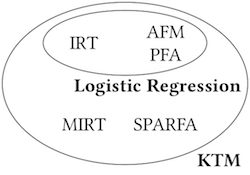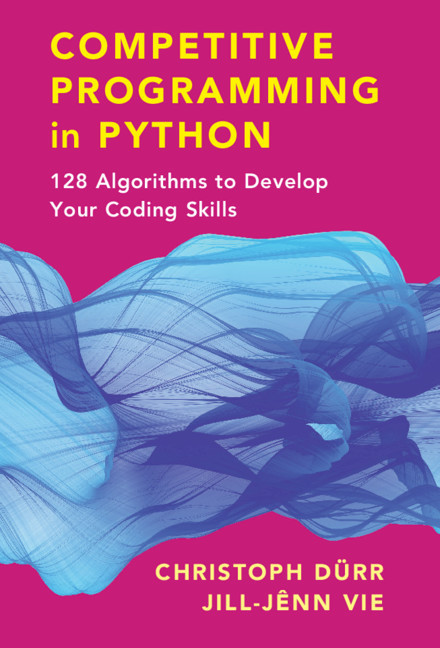Jill-Jênn Vie
Researcher at Inria, Lecturer at l’X
I am a researcher at Inria, Soda team and a lecturer at École polytechnique and ENS Paris where I teach competitive programming (Polytechnique won ICPC SWERC 2024 🥇🏆) and deep learning. My research interests are recommender systems and application of machine learning and reinforcement learning to education (Vassoyan et al. 2024).
- Our paper “Robust Post-hoc Score Allocation in Exams” has been accepted at Learning Analytics & Knowledge Conference. (Kita et al. 2026)
- Our paper “Investigating the Influence of Training Difficulty on the Learning Outcomes of Medical Students” was accepted at Journal of Computer-Assisted Learning. (Kandemir et al. 2026)
We are hiring engineers, postdocs and PhD students, as we were awarded an IA-Cluster chair about ATLAS: AI for teaching and learning at scale at Paris-Saclay University & an ANR JCJC grant that I can share with interested people. You can either wait for a more precise job offer description, or directly reach out with a CV.
Feel free to contact me by mail (PGP key).
Research Interests
- Knowledge tracing: predicting student performance
-
Training a student model on student data can be used to optimize teaching using reinforcement learning.
I am also interested in synthetic tabular data generation (Vie* et al. 2022). - Recommender systems: collaborative filtering
-
We study applications of collaborative filtering for education, personalized medicine (Réda et al. 2025a, 2025b) and diversity of recommendations using determinantal point processes (pass Culture, Kyoto U) [slides] (Ibrahim et al. 2025).


Highest Peaks where I’ve been
See my projects and CV
Government & State Startups
- I developed the original adaptive test of Pix @ French Ministry of Education. This is free software that certifies the digital skills of all French citizens (Vie et al. 2017)
- We optimized the diversity of recommendations to encourage discovery on French citizens with Pass Culture ~ French Ministry of Culture (Ibrahim et al. 2025)
- European Commission
- Jury de l’agrégation d’informatique ; avec Marc Jeanmougin nous avons fait l’environnement de concours NonOS
- Jury du concours X, ENS
- J’ai rejoint le conseil scientifique de l’Éducation nationale
Programming
- Using a Google RISE Award, we founded the Girls Can Code! summer schools for K-12 girls running since 2014
- The 2024 & 2025 ICPC World Finals with students from École polytechnique
- Président de Prologin
- Secrétaire de la Société informatique de France
Abroad
- Mt Fuji, 3776 m
- AAAI 2019, General Chair @ EDM 2021, NeurIPS 2024
- Pixar Animation Studios
- I’ve seen Yoko Kanno & THE SEATBELTS in concert
Collaborators
- Tomas Rigaux, Hisashi Kashima and Koh Takeuchi from Kyoto University: associated team RED
- Clémence Réda @ CNRS, IBENS
- Franck Silvestre @ IRIT
- Luc Rocher @ Synthetic Society Lab @ University of Oxford
Selected Publications
See all publications / My Scholar page
